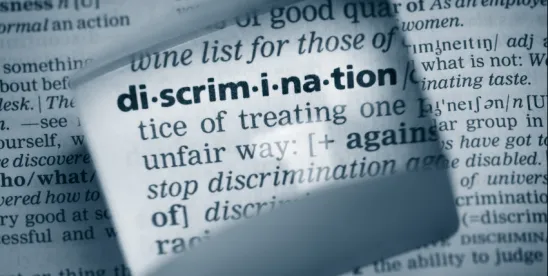On April 23, 2025, the President issued an Executive Order (“EO”) titled “Restoring Equality of Opportunity and Meritocracy” that seeks to drastically curtail the use of disparate-impact liability in federal regulations, marking a significant shift in the federal government’s approach to civil rights enforcement. What does this mean for companies going forward?
Background
Let’s start with a review of disparate-impact liability under civil rights laws. This concept refers to practices or policies that, while seemingly neutral, disproportionately affect members of a protected class. This type of liability does not require proof of intentional discrimination; instead, it focuses on the outcomes of the policies or practices.
For example, under Title VII of the Civil Rights Act of 1964, disparate-impact liability occurs when an employment practice adversely affects one group more than another, even if the practice appears neutral. If a plaintiff can show that a policy has a disproportionately negative effect on a protected class, the burden shifts to the defendant to demonstrate that the practice is job-related and consistent with business necessity. Disparate-impact liability is also recognized under several other federal and state civil rights laws.
The EO asserts that the foundational principle of the United States is equality of opportunity, not equality of outcomes. The EO criticizes disparate-impact liability as a “pernicious movement” that, in the administration’s view, undermines meritocracy and the constitutional guarantee of equal protection. Disparate-impact liability, as described in the EO, is a legal doctrine that presumes unlawful discrimination based solely on statistical differences in outcomes among groups, even absent any discriminatory intent or facially discriminatory policy. The EO contends that this doctrine compels employers and businesses to consider race or other protected characteristics in decision-making, thereby encouraging racial balancing and undermining individual merit.
Key EO Provisions
The EO focuses on deprioritizing enforcement of any rules that impose disparate-impact liability. It directs the attorney general, in coordination with agency heads, to identify all existing regulations, guidance, rules, or orders that impose disparate-impact liability and reporting on steps for their amendment or repeal within 30 days. The review also extends to state laws and decisions that impose disparate-impact liability. In addition, the EO requires the following:
- Revocation of Prior Approvals and Regulations: The EO revokes prior presidential approvals of Department of Justice regulations under Title VI of the Civil Rights Act of 1964 to the extent they impose disparate-impact liability. Specific regulatory provisions in 28 C.F.R. 42.104 are identified for revocation.
- Review of Pending Matters: Within 45 days, the attorney general and the chair of the Equal Employment Opportunity Commission (“EEOC”) must assess all pending investigations, civil suits, or positions in ongoing matters under federal civil rights laws that rely on disparate impact liability and take appropriate action consistent with the new policy. The EO directs other agencies, including the Department of Housing and Urban Development and the Consumer Financial Protection Bureau, to review pending proceedings under the Fair Housing Act, Equal Credit Opportunity Act, and related statutes.
- Review of Existing Judgments: The EO directs all agencies to evaluate, within 90 days, existing consent judgments and permanent injunctions that rely on disparate-impact theories and take appropriate action.
- Future Agency Action and Guidance: The EO directs the attorney general to determine whether federal law preempts state laws imposing disparate-impact liability and to take appropriate measures. The EO also tasks the attorney general and the EEOC Chair with issuing guidance to employers on promoting equal access to employment, including for applicants without a college education.
Implications for Employers and Next Steps
This EO mandates a substantial change in the federal government’s enforcement of civil rights laws, particularly with respect to employment, housing, and credit. Employers should anticipate the following:
- Reduced Federal Enforcement: Agencies are directed to deprioritize and amend regulations that can impose disparate-impact liability, potentially reducing the risk of federal enforcement actions that are based solely on statistical disparities.
- Regulatory Uncertainty: The EO requires a comprehensive review and potential amendment or repeal of existing regulations that rely on disparate-impact theories, which may result in significant changes to compliance obligations.
- State Law Considerations: The EO contemplates federal preemption of state disparate-impact laws, which may lead to further legal challenges and changes at the state level.
- Guidance on Merit-Based Practices: Employers may receive new federal guidance emphasizing merit-based hiring and promotion practices, with a focus on individual qualifications rather than group-based outcomes.
Employers should continue to monitor developments as agencies undertake the required reviews and issue new guidance. Employers should also consult with legal counsel under privilege to confidentially review their current policies and practices in light of the coming changes.




 />i
/>i
